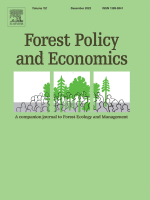The impact of conservation and land use transitions on the livelihoods of indigenous peoples: A narrative review of the northern Thai highlands
Publication Description
Ecosystem conservation has moved to the centre of global development agendas in light of an unprecedented acceleration of environmental degradation, species extinction, and catastrophic weather events. Global and national conservation policies with seemingly laudable aspirations, however, have been widely instrumentalised and distorted – leading researchers to argue that the very tools to safeguard natural spaces feed consistently into a market-oriented agricultural production and modernisation agenda. Indigenous peoples who continue to inhabit protected spaces as their ancestral lands have systematically suffered in this process. We conducted a place-based narrative literature review to formulate a consistent agenda for the next generation of conservation research and policy to help overcome this persistent challenge, drawing on the extensive and interdisciplinary research literature of the northern Thai highlands published until 2021.
The place-based narrative review traced gradual contextual change, inconsistent policy directions, and perverse incentives that have created a systemic challenge to ecosystem conservation. Key research gaps are the under-appreciated symbolic and affective dimensions of evolving tropical landscapes at the interface of Indigeneity, conservation, and development. Our proposed research agenda involves the synergistic combination of tools of human security, everyday environmental heritage, activity spaces, and behavioural design to understand these experiential dimensions of conservation from the perspective of Indigenous peoples, their active role as security contributors, pathways to impact, and new models of policy making. Suggested policy responses revolve around comprehensive domains of action (instead of isolated interventions) to overcome the systemic and contextual challenges affecting Indigenous livelihoods.

